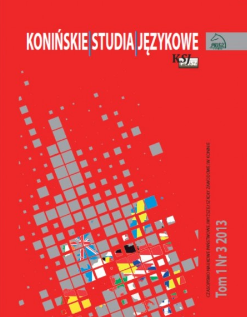The use of non-authentic materials in fostering English reading comprehension
The use of non-authentic materials in fostering English reading comprehension
Author(s): Bairon Jaramillo Valencia, Sara Isabel Álvarez Alvis, Jerson Alexander Mesa Montoya, Valentina Restrepo NietoSubject(s): Foreign languages learning, Language acquisition, Pedagogy
Published by: Akademia Nauk Stosowanych w Koninie
Keywords: non-authentic materials; reading comprehension; education; realities; English;
Summary/Abstract: The main goal of this research is to describe the impact that non-authentic reading materials have on literary skills, specifically reading comprehension. Two principal concepts are defined that deal with the purpose of this research. These are, firstly, non-authentic material, conceived of as a set of contextualized materials designed by teachers for pedagogical purposes, taking into consideration students’ reality, and, secondly, reading comprehension, which is understood as a process of extracting meaning from text. The present inquiry adopts the qualitative approach, the hermeneutic paradigm, and the case study method, since it deals with human behaviors aspects that cannot be quantified. Thus, the techniques used for gathering the data were interviews, documentary analysis and non-participant observations through project-based learning (PBL) activities. The participants were recruited from Institución Jesus Maria El Rosal, located in the commune five of Medellin, Columbia. The main findings indicate that when students were exposed to contextualized reading materials, their behavior, participation and motivation increased significantly. Besides, it was found that reading comprehension processes were improved while working with non- authentic materials.
Journal: Konińskie Studia Językowe
- Issue Year: 8/2020
- Issue No: 4
- Page Range: 391-408
- Page Count: 18
- Language: English

